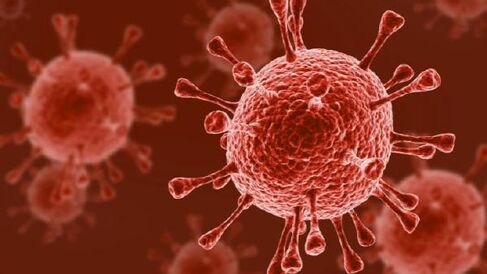
A second person has experienced sustained remission from HIV-1 after ceasing treatment, according to a study published today in Nature.
At the moment the only way to treat HIV is with medications that suppress the virus, which people need to take for their entire lives, posing a particular challenge in developing countries
Ravindra Gupta
The case report, carried out by researchers at UCL and Imperial College London, together with teams at the University of Cambridge and the University of Oxford, comes ten years after the first such case, known as the ‘Berlin Patient.’ Both patients were treated with stem cell transplants from donors carrying a genetic mutation that prevents expression of an HIV receptor CCR5.
The subject of the new study has been in remission for 18 months after his antiretroviral therapy (ARV) was discontinued. The authors say it is too early to say with certainty that he has been cured of HIV, and that they will continue to monitor his condition.
“At the moment the only way to treat HIV is with medications that suppress the virus, which people need to take for their entire lives, posing a particular challenge in developing countries,” said the study’s lead author, Professor Ravindra Gupta from the University of Cambridge, who led the study while at UCL.
“Finding a way to eliminate the virus entirely is an urgent global priority, but is particularly difficult because the virus integrates into the white blood cells of its host.”
According to the World Health Organization, there were approximately 36.9 million people worldwide living with HIV/AIDS in 2017 and only 59% of these are receiving ARV. Drug-resistant HIV is a growing concern. Almost one million people die annually from HIV-related causes. The report describes a male patient in the UK, who prefers to remain anonymous, and was diagnosed with HIV infection in 2003 and on antiretroviral therapy since 2012. Later in 2012, he was diagnosed with advanced Hodgkin’s Lymphoma. In addition to chemotherapy, in 2016 he underwent a haematopoietic stem cell transplant from a donor with two copies of the genetic mutation (or ‘allele’) that prevents expression of CCR5.
The patient is only the second person documented to be in sustained remission without ARV. The first, the Berlin Patient, also received a stem cell transplant from a donor with two of the CCR5 alleles, but to treat leukaemia. Notable differences were that the Berlin Patient was given two transplants and underwent total body irradiation, while the UK patient received just one transplant and less intensive chemotherapy.
The researchers caution that the approach is not appropriate as a standard HIV treatment due to the toxicity of chemotherapy, but it offers hope for new treatment strategies that might eliminate HIV altogether.
The research was funded by Wellcome, the Medical Research Council, the Foundation for AIDS Research, and National Institute for Health Research (NIHR) Biomedical Research Centres at University College London Hospitals, Oxford, Cambridge and Imperial.
